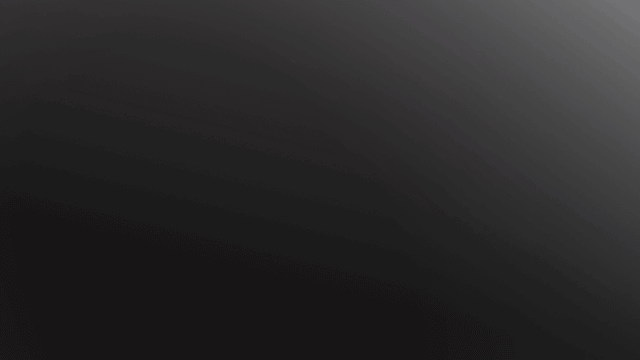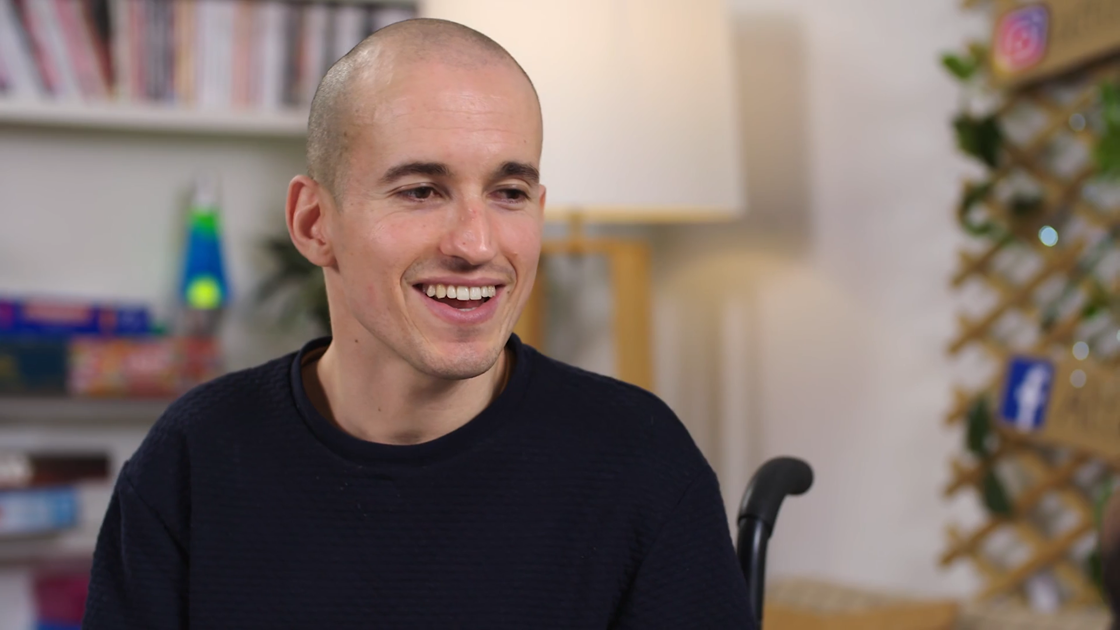
Whats Your Possibility? Muskaan and Red
Conversations about growing up with a disability. Red Nicholson and Muskaan discuss the changes we're seeing in a more inclusive society.



Whats Your Possibility? Muskaan and Red
Conversations about growing up with a disability. Red Nicholson and Muskaan discuss the changes we'...
Whats Your Possibility? Muskaan and Red



What's Your Possibility? Josh & Sophia
Sophia and Josh have very different disabilities. Shakti asks some tough questions about growing up ...
What's Your Possibility? Josh & Sophia



What's Your Possibility? Paddy Walsh
Shakti has a chat with Paddy Walsh. Paddy, a 15 year old amputee and sportswoman talks to Shakti abo...
What's Your Possibility? Paddy Walsh



What's Your Possibility? Rebecca Dubber
Rebecca is an accomplished Paralympian swimmer, with 4 medals over her career. Shakti and Rebecca ta...
What's Your Possibility? Rebecca Dubber



What's Your Possibility? Olivia Shivas
Olivia Shivas is a young disability advocate living with a rare form of Muscular Dystrophy. Shakti h...
What's Your Possibility? Olivia Shivas



What's Your Possibility? Emma & Lizara
Shakti discusses growing up with a disability with friends Emma and Lizara.
What's Your Possibility? Emma & Lizara
I was a little nervous to interview Red. When looking him up I resonated really strongly with some of the blogs he had written. It was like someone had taken the ideas out of my brain and articulated it in a way I couldn’t.
I had to acknowledge the top tier wokeness this dude was about. I wouldn’t say I’m “new” to the disability community. But I’ve grown up around primarily able bodied people. I’m so used to my friends all being able bodied - lifting me around and doing things for me.
As an adult I’ve engaged more with the disability community and I couldn’t believe all the wisdom I was missing out on. I didn’t know why it had taken me so long, until Red explained it for me
“Two words, internalised ableism”

Internalised ableism is not a term I previously had in my vocabulary. Little did I know this idea would really change the way I thought about myself and my disability.
Internalised ableism is the idea that people living with disabilities internalise the ableist narrative (that disabled = not good) we grow up with in society.
I really empathised with this. In school I resented being associated with the disability centre. I didn’t want to socialise with other disabled kids because it was easier to get along with able bodied kids when I played down my own disability.
“You are incentivised to hide your disability, and when you try and hide a large part of who you are it can be uncomfortable.”
As Red explained, “You are incentivised to hide your disability, and when you try and hide a large part of who you are it can be uncomfortable.”
It was really insightful being able to ask someone with a little more lived experience and wisdom about their disability. Young disabled people I believe are at a large risk of isolation or issues with identity because of how hard it can be to socialise.
I have learnt many invaluable lessons from Red, but what I thought was most significant was the importance of collaborating with other disabled people. As Red put it - “We’re often the only person we know with a disability growing up”. And that can be tough! So talk to people who may have a similar experience to you. Be open to listen and learn, you might find it useful.



My Perfect Family: Candle Dad
Raising four children alone is a challenge - more so, when two have Down Syndrome. Tony Sykes rose t...
My Perfect Family: Candle Dad



My Perfect Family:Fragile X
To discover you’re the carrier of the genetic condition Fragile X only after your children are born ...
My Perfect Family:Fragile X



My Perfect Family: Twins
For young mum Nikki Stokes being a mother of five means there's never a dull moment. With non-verbal...
My Perfect Family: Twins



Whats Your Possibility? Muskaan and Red
Conversations about growing up with a disability. Red Nicholson and Muskaan discuss the changes we'...
Whats Your Possibility? Muskaan and Red



My Perfect Family: Mahia & Tipene
Mahia and Tipene Stephens were born with a congenital eye disorder, causing their eyesight to deteri...
My Perfect Family: Mahia & Tipene



SheLift Part 1
Each year girls and women with various abilities and limb differences from all over the States meet ...
SheLift Part 1



SheLift: Part 2
Each year girls and women with various abilities and limb differences from all over the States meet ...
SheLift: Part 2



My Perfect Family: Southland
Southland Disability Enterprises employs over 80 people who live with a disability. For Mary-Ellen J...
My Perfect Family: Southland



Being Me: Rachael Leahcar
Australian singer-songwriter, Rachael Leahcar, was born with retinitis pigmentosa and at 25-years-ol...
Being Me: Rachael Leahcar



Attitude Awards 2019: Preview
The 12th Annual Attitude Awards celebrate the achievements of people making a positive impact in the...
Attitude Awards 2019: Preview



Paul Gibson
When Paul Gibson was studying for his Masters degree in he faced ignorance and prejudice but those c...
Paul Gibson



The Cookie Project
The Cookie Project is a social enterprise with a winning recipe. Founders Eric and Graham provide pa...
The Cookie Project



Jezza Williams
Kiwi adrenaline junkie, Jezza Williams has always pushed his limits. He was working as a canyoning g...
Jezza Williams



Jenn Hooper
Jenn Hooper began her advocacy work after her daughter Charley was born. Complications during birth ...
Jenn Hooper



Jaunita Willems
Despite a busy life raising two boys with epilepsy and being almost blind herself, Juanita is a lead...
Jaunita Willems



Kiringāua Cassidy
Kiringaua is carving a role for himself as an orator in both English and Te Reo Maori. He’s also an ...
Kiringāua Cassidy



Nigel Cash
As athletics coach for Special Olympics Nigel Cash prepares his athletes well. Nigel transitioned fr...
Nigel Cash



Corey Newman
Living with Cerebral Palsy, Cory Newman is the lead singer in the band Sit Down In Front, a Gisborne...
Corey Newman



Leah Stewart
24 year old Leah Stewart knew from an early age she wanted to care for others. As a rehabilitation c...
Leah Stewart



Tim Fairhall
Tim Fairhall isn't afraid to stand up for his rights. Tim rocked the boat by presenting to a governm...
Tim Fairhall



Gavin Rolten
Gavin is quadriplegic following a diving accident. At first he struggled to find a career post accid...
Gavin Rolten



Axiam Plastics Ltd.
Whanganui based, Axiam Plastics Limited is an engineering company with a clear strategy to recruit, ...
Axiam Plastics Ltd.



Sudima Auckland
Sudima Hotels are leading the way as the only proudly accessible hotel group in Aotearoa.
Sudima Auckland



AJ Poua
AJ has turned her passion for fitness into a successful business, Wheelie Active after a fall from a...
AJ Poua



Dave MacCalman
Dave MacCalman has been instrumental in developing new sports programmes across the Waikato and Bay ...
Dave MacCalman



Rebecca Dubber
Even as she was coping with the intense demands of her Paralympic swimming career Rebecca Dubber kne...
Rebecca Dubber



James Wilson
James was the only powerlifter to represent New Zealand in the Special Olympics World Games in Abu D...
James Wilson



Gabby Wright
Gabby Wright had a vision of playing for the Silver Ferns. She was playing representative netball wh...
Gabby Wright



Graeme Haddon
For 15 years, Graeme has dedicated his life to looking after disadvantaged youth. Seven years ago he...
Graeme Haddon



Letitia Tupua
Leticia has been supporting tetraplegic patients for Drake Medox for the past 17 years. Leticia look...
Letitia Tupua



Ephraim Gudgeon
28 year old Ephraim Gudgeon turned a life changing accident into positive change in his life and now...
Ephraim Gudgeon



Carlos Biggemann
Carlos is a professional photographer with exhibitions in New Zealand, Bolivia and an upcoming exhib...
Carlos Biggemann



Eric Chuah
Prior to moving to New Zealand Eric worked in the banking world. It was a chance meeting with a man ...
Eric Chuah



Impact: Stroke
A medical stroke impacts the lives of more than 9000 New Zealanders every year. Here, we visit Middl...
Impact: Stroke



Special Olympics Speed Skater: Evan James
Small for his age and bullied at school, most thought Evan James wouldn’t amount to much … things ch...
Special Olympics Speed Skater: Evan James



Ese The Blind Musician
Music isn't just something you listen to; some people feel it emotionally and spiritually. Music is ...
Ese The Blind Musician



The Mums: Diagnosis
Right from diagnosis, the journey of parenting a child with a disability is full of unknowns. Expect...
The Mums: Diagnosis



The Mums: Diagnosis
Right from diagnosis, the journey of parenting a child with a disability is full of unknowns. Expect...
The Mums: Diagnosis



Special Olympics Figure Skater: Meg
Meg was mesmerised by the sparkly dresses when she first watched figure skating on TV. After her 9th...
Special Olympics Figure Skater: Meg



Beauty Queen with Down Syndrome: Aubrey the Amazing
Aubrey Armstrong is a 13-year-old from Mississippi and she is full of sass! When she's not bossing h...
Beauty Queen with Down Syndrome: Aubrey the Amazing



The Mums: Education
All children deserve an equal opportunity to education. But for some parents of children with disabi...
The Mums: Education



The Mums: Where to Seek Help
The process of simply seeking out help when you have a child with a disability can be a complicated ...
The Mums: Where to Seek Help



The Mums: Looking to the Future
There are a lot of unknowns when raising a child with a disability. In the final episode of our pare...
The Mums: Looking to the Future



The Mums: Friendships
Like every other child, kids with disabilities want to fit in and find ‘their tribe’. In this episod...
The Mums: Friendships



Kids with Disabilities: Winnie
Winnie is a gutsy nine-year-old who gives everything a go. She usually gets around in a wheelchair b...
Kids with Disabilities: Winnie



Kids with Disabilities: Luke
Luke has Down syndrome and is one of the most compassionate and funniest nine-year-olds in Canterbur...
Kids with Disabilities: Luke



Kids with Disabilities: Destiny
Destiny is an eight-year-old with cerebral palsy. In her own words: ‘CP is a thing in the legs, the ...
Kids with Disabilities: Destiny



Kids with Disabilities: Harper
Harper is six years old and full of life! Despite some health challenges, he gives everything a go a...
Kids with Disabilities: Harper



Tiny Houses Jason Gillard
Jason has autism and never fit in with his peers at school. But it's his quirks and attention to det...
Tiny Houses Jason Gillard



Mouth and Foot Painter: Grant Sharman
At 15 years old Grant broke his neck playing rugby and became tetraplegic. After his injury it was p...
Mouth and Foot Painter: Grant Sharman



The Road to Miss Amazing 2018: Part 3
There’s only four days until the Miss Amazing 2018 final, and Jordan’s on a tight schedule with no r...
The Road to Miss Amazing 2018: Part 3



The Road to Miss Amazing 2018: Part 3
There’s only four days until the Miss Amazing 2018 final, and Jordan’s on a tight schedule with no r...
The Road to Miss Amazing 2018: Part 3



The Road to Miss Amazing 2018: Part 3
There’s only four days until the Miss Amazing 2018 final, and Jordan’s on a tight schedule with no r...
The Road to Miss Amazing 2018: Part 3



The Road to Miss Amazing 2018: Part 3
There’s only four days until the Miss Amazing 2018 final, and Jordan’s on a tight schedule with no r...
The Road to Miss Amazing 2018: Part 3



The Road to Miss Amazing 2018: Part 1
This year, 17-year-old Abby returns to Miss Amazing as the reigning winner, after having a life-chan...
The Road to Miss Amazing 2018: Part 1



The Road to Miss Amazing 2018: Part 1
This year, 17-year-old Abby returns to Miss Amazing as the reigning winner, after having a life-chan...
The Road to Miss Amazing 2018: Part 1



The Road to Miss Amazing 2018: Part 1
This year, 17-year-old Abby returns to Miss Amazing as the reigning winner, after having a life-chan...
The Road to Miss Amazing 2018: Part 1



The Road to Miss Amazing 2018: Part 1
This year, 17-year-old Abby returns to Miss Amazing as the reigning winner, after having a life-chan...
The Road to Miss Amazing 2018: Part 1



The Road to Miss Amazing 2018: Part 5
Gigi fights her nerves, and makes it on stage for her first appearance. Mum’s Lisa and Christine sh...
The Road to Miss Amazing 2018: Part 5



The Road to Miss Amazing 2018: Part 5
Gigi fights her nerves, and makes it on stage for her first appearance. Mum’s Lisa and Christine sh...
The Road to Miss Amazing 2018: Part 5



The Road to Miss Amazing 2018: Part 5
Gigi fights her nerves, and makes it on stage for her first appearance. Mum’s Lisa and Christine sh...
The Road to Miss Amazing 2018: Part 5



The Road to Miss Amazing 2018: Part 5
Gigi fights her nerves, and makes it on stage for her first appearance. Mum’s Lisa and Christine sh...
The Road to Miss Amazing 2018: Part 5



The Road to Miss Amazing 2018: Part 2
Miss Amazing created positive change for Abby, but see how the pageant has changed the life of her m...
The Road to Miss Amazing 2018: Part 2



The Road to Miss Amazing 2018: Part 2
Miss Amazing created positive change for Abby, but see how the pageant has changed the life of her m...
The Road to Miss Amazing 2018: Part 2



The Road to Miss Amazing 2018: Part 2
Miss Amazing created positive change for Abby, but see how the pageant has changed the life of her m...
The Road to Miss Amazing 2018: Part 2



The Road to Miss Amazing 2018: Part 2
Miss Amazing created positive change for Abby, but see how the pageant has changed the life of her m...
The Road to Miss Amazing 2018: Part 2



The Road to Miss Amazing 2018: Part 4
Contestants arrive at the Miss Amazing 2018 pageant in Chicago, the ballroom is still getting decora...
The Road to Miss Amazing 2018: Part 4



The Road to Miss Amazing 2018: Part 4
Contestants arrive at the Miss Amazing 2018 pageant in Chicago, the ballroom is still getting decora...
The Road to Miss Amazing 2018: Part 4



The Road to Miss Amazing 2018: Part 4
Contestants arrive at the Miss Amazing 2018 pageant in Chicago, the ballroom is still getting decora...
The Road to Miss Amazing 2018: Part 4



The Road to Miss Amazing 2018: Part 4
Contestants arrive at the Miss Amazing 2018 pageant in Chicago, the ballroom is still getting decora...
The Road to Miss Amazing 2018: Part 4



The Road to Miss Amazing 2018: Part 6
Gigi’s friends come to the rescue when the pressure of performing and being on stage almost becomes ...
The Road to Miss Amazing 2018: Part 6



The Road to Miss Amazing 2018: Part 6
Gigi’s friends come to the rescue when the pressure of performing and being on stage almost becomes ...
The Road to Miss Amazing 2018: Part 6



The Road to Miss Amazing 2018: Part 6
Gigi’s friends come to the rescue when the pressure of performing and being on stage almost becomes ...
The Road to Miss Amazing 2018: Part 6



The Road to Miss Amazing 2018: Part 6
Gigi’s friends come to the rescue when the pressure of performing and being on stage almost becomes ...
The Road to Miss Amazing 2018: Part 6



What's Your Possibility? Olivia Shivas
Olivia Shivas is a young disability advocate living with a rare form of Muscular Dystrophy. Shakti h...
What's Your Possibility? Olivia Shivas



What's Your Possibility? Josh & Sophia
Sophia and Josh have very different disabilities. Shakti asks some tough questions about growing up ...
What's Your Possibility? Josh & Sophia



What's Your Possibility? Emma & Lizara
Shakti discusses growing up with a disability with friends Emma and Lizara.
What's Your Possibility? Emma & Lizara



Question Time: Sam
In this episode of Question Time, Sam answers a few questions about being short statured and his big...
Question Time: Sam



Question Time: Living with Muscular Dystrophy
In our new series, we answer some of the commonly asked questions relating to disability. This week...
Question Time: Living with Muscular Dystrophy



What's Your Possibility? Rebecca Dubber
Rebecca is an accomplished Paralympian swimmer, with 4 medals over her career. Shakti and Rebecca ta...
What's Your Possibility? Rebecca Dubber



Question Time: Living with a Prosthetic Leg
In this episode of Question Time, we are asking Robbie about living with a prosthetic leg. Made wit...
Question Time: Living with a Prosthetic Leg



Question Time: Septicaemia Survivor
Five years ago Korrin's life turned upside down when she contracted sepsis which resulted in amputat...
Question Time: Septicaemia Survivor



Question Time: Down syndrome
Question Time is a segment where we ask questions you've always wanted to ask a person with a disabi...
Question Time: Down syndrome



Question Time: Surviving Meningococcal
In our new series, we answer some of the commonly asked questions relating to disability. Thanks t...
Question Time: Surviving Meningococcal



Love Is Blind: Korin & Craig
When Korrin lost her hands and feet to septicaemia, Craig was by her side the whole time. Korrin had...
Love Is Blind: Korin & Craig



Love Is Blind: Ese & Sarah
It was a hug at a staff BBQ and Sarah was instantly smitten with Ese. Despite judgements from other ...
Love Is Blind: Ese & Sarah



Love Is Blind: Don & Rosemary
Don and Rosemary have been married for more than 60 years. Although they are both vision impaired, t...
Love Is Blind: Don & Rosemary



Love Is Blind: Tim & Helen
Tim was a professional athlete with the Wheel Blacks and didn't want a girlfriend. But when Helen he...
Love Is Blind: Tim & Helen



Love Is Blind: Loren & Mark
Loren and Mark met at university 4 years ago and have now become each other's person. In this specia...
Love Is Blind: Loren & Mark



Love Is Blind: Mike & Rebecca
Mike and Rebecca have learning disabilities but that hasn't stopped them from getting married and li...
Love Is Blind: Mike & Rebecca



Phil's Life Was Changed in a Moment
Phil Spring broke his neck in a scrum over 40 years ago, since then he's had a full life making impo...
Phil's Life Was Changed in a Moment



Nafi's Life Was Changed in a Moment
Nafi Tefono was 'young and bulletproof' and a talented rugby player, but one day a misplaced tackle ...
Nafi's Life Was Changed in a Moment



Sophia's Life Was Changed in a Moment
Sophia was training to be a jockey when she was thrown from her horse, breaking her neck. She tells ...
Sophia's Life Was Changed in a Moment



Parveen's Life Was Changed in a Moment
Parveen lost his sight in a car accident at 25. He thought life was over, but he was soon to learn i...
Parveen's Life Was Changed in a Moment



O'Connor's Life Was Changed in a Moment
O'Connor sustained a traumatic brain injury in a motorbike accident. His mother thought he'd never g...
O'Connor's Life Was Changed in a Moment



Tanya's Life Was Changed in a Moment
Tanya Black was left paralysed after a simple fall in her home 12 years ago. She never thought she'd...
Tanya's Life Was Changed in a Moment



Casey's Life Was Changed in a Moment
It was just over a year ago that Casey broke her neck while training for an upcoming motocross event...
Casey's Life Was Changed in a Moment



Iziyah: Kids with Disabilities
"Sometimes I'm the same and sometimes I'm a bit different." Iziyah deals with some unique medical i...
Iziyah: Kids with Disabilities



New Zealand Fashion Week: Sophia's First Runway
The last time we checked in with up and coming model Sophia Malthus, she was representing All is for...
New Zealand Fashion Week: Sophia's First Runway



New Zealand Fashion Week: Sophia's Casting
In a New Zealand Fashion Week first, All Is For All models captivated the casting call with kiwi bra...
New Zealand Fashion Week: Sophia's Casting



Inside Outside: Jesse Coles-Hart
Jesse Coles-Hart has started his first paid job as an assistant baker, but he still makes time for t...
Inside Outside: Jesse Coles-Hart



Disability System Transformation and Accessibility
Minister for Disability Issues, Carmel Sepuloni and the Minister of Health, Andrew Little are announ...
Disability System Transformation and Accessibility



My Perfect Family: Harper Ahern
Since being diagnosed with Muscular Dystrophy at age four, 10-year-old surfer Harper and his family ...
My Perfect Family: Harper Ahern



What's the Disabili-Tea - Finn Hitch
Finn Hitch (They/ Them) recently moved to Tāmaki Makaurau and they are keen to connect with the quee...
What's the Disabili-Tea - Finn Hitch



What's The Disabili-Tea - Ari Kerssens (with Audio Description)
Advocate for blindness and low vision, Ari Kerssens is jazzing up his cane in the hopes to promote a...
What's The Disabili-Tea - Ari Kerssens (with Audio Description)


Jonathan Mosen Audio with Captions
Jonathan Mosen - Audio with Captions
Jonathan Mosen Audio with Captions



Being Me: Bailee Lobb
Installation artist Bailee Lobb uses her colourful works to explore lived experience of disability, ...
Being Me: Bailee Lobb

